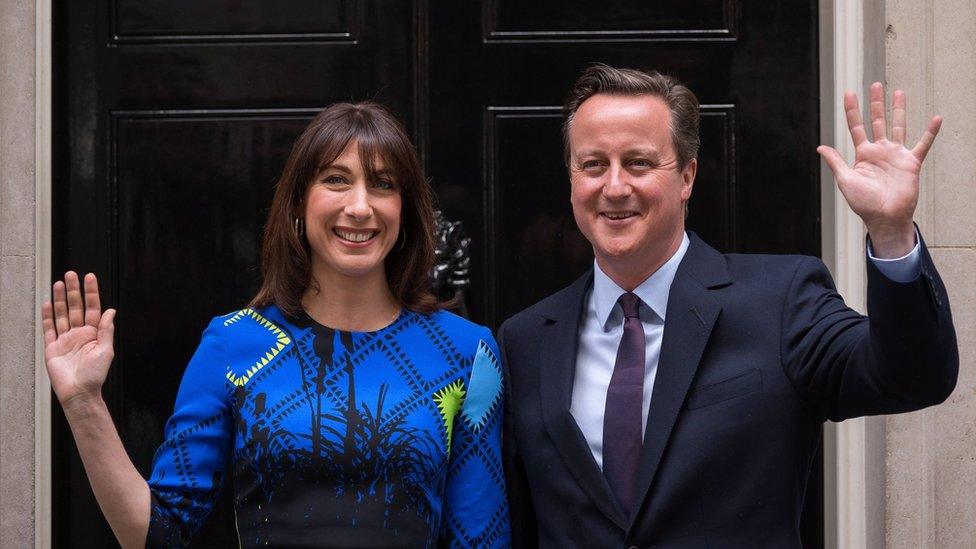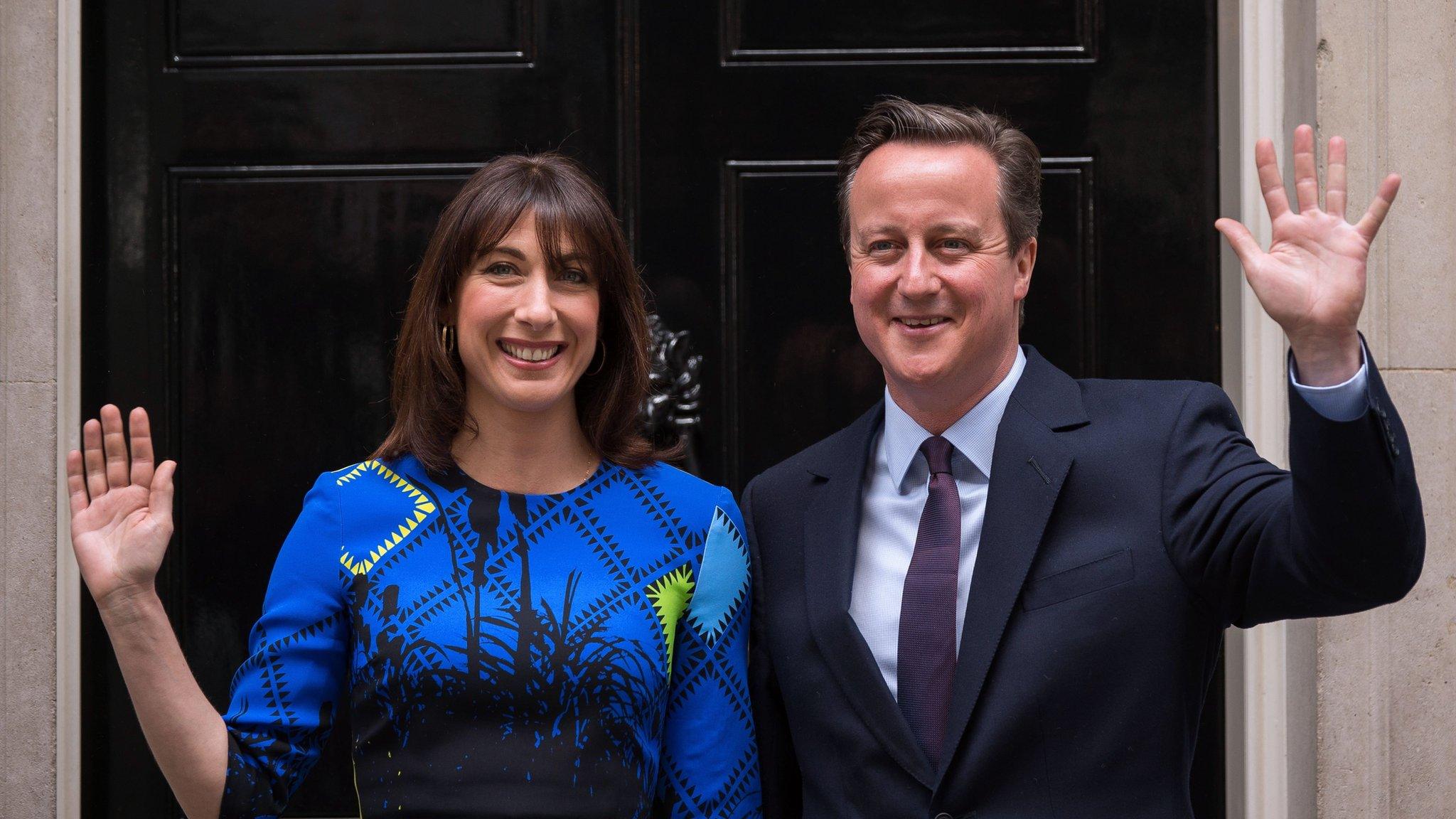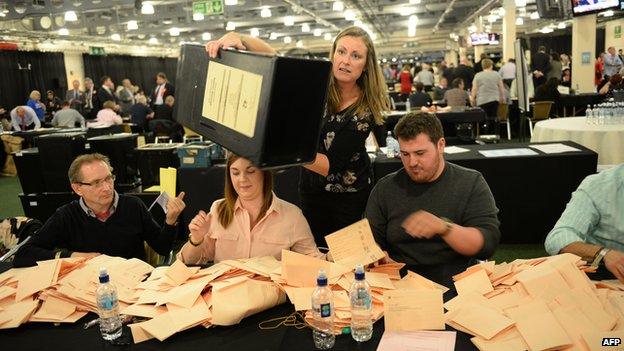'Not enough Tories' in general election opinion polls
- Published

Pollsters failed to predict the scale of the Conservatives' election victory
The failure of opinion pollsters to predict the outcome of May's general election may have been because Conservative voters are harder to track down, a report suggests.
The disparity between forecasts and the eventual Conservative majority has been blamed on "shy Tory" voters or a late swing to David Cameron's party.
But polling expert John Curtice highlighted sampling "deficiencies".
His report said "more time and effort" was needed to find Conservative voters.
'Repeated efforts'
Pre-election polls had suggested the result was too close to call, but the Conservatives went on to win an absolute majority, with 331 seats.
Prof Curtice, who wrote the report for research agency NatCen, suggested polling difficulties arose "primarily because [pollsters] interviewed too many Labour supporters and not enough Conservatives".
Why did the election polls get it so wrong?
NatCen interviewed 4,238 people between July and November last year for its British Social Attitudes Survey.
It said it had made "repeated efforts" over the four months to make contact with the people it had selected to interview - and among those it was able to contact most easily, Labour had a six-point lead.
However, among the harder-to-contact group, who took between three and six calls to track down, the Conservatives were 11 points ahead.
Neck and neck
"Polls are conducted over just two or three days, which means they are more likely to interview those who are contacted most easily, either over the internet or via their phone," the report said.
The report rejected the "shy Tories" argument, which suggests Conservatives are less willing to declare their voting intentions when asked.
It said even when polling companies returned to respondents and asked how they had voted, they still put Labour and the Tories neck and neck.
But the British Social Attitudes survey put the Conservatives 6.1 points ahead of Labour, close to the actual election margin of 6.6 points.
Key lesson
Polling companies use a complex method to attempt to make their surveys representative, including weighting the responses to match the UK's demographic profile.
The report said its random sampling method was more representative.
Prof Curtice added: "A key lesson of the difficulties faced by the polls in the 2015 general election is that surveys not only need to ask the right questions but also the right people."
An investigation by the British Polling Council into the polling failures ahead of May's general election is due to be published later this month.
- Published27 December 2015

- Published8 May 2015
